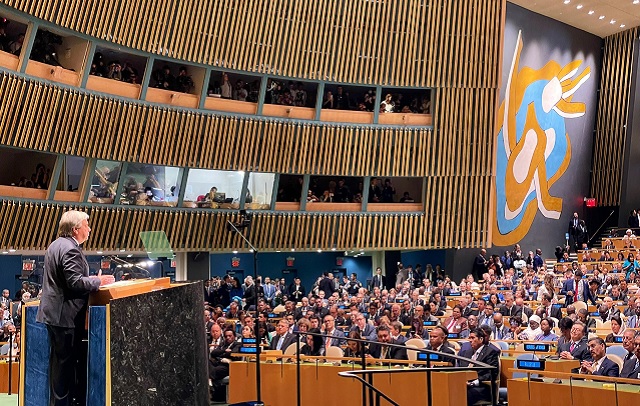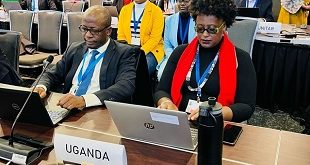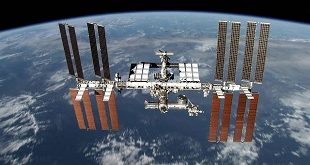
United Nations, US | Xinhua | World leaders on Thursday, the third day of the General Debate of the UN General AssWorld leadersembly, stressed the central role of the United Nations and the need to reform the organization to make it fit for purpose.
Serbian President Aleksandar Vucic said the principles of the UN Charter have a bearing on the survival of human civilization.
“I want to raise the voice on behalf of my country, but also on behalf of those who today, 78 years after the establishment of the United Nations, truly and equally believe that the principles of the UN Charter are the only substantial defense of the world peace, right to freedom and independence of nations and countries,” he said. “But more than that, they are the pledge of the mere survival of the human civilization.”
A new global wave of wars and violence that are impacting the foundations of international security is a painful consequence whose cause lies in abandoning the principles envisaged in the UN Charter, he said.
When big powers bend the principles, when there is no morality in world politics, it is clear that humanity is about to enter an era of big divisions and big conflicts, he warned.
“And precisely in this difficult situation, the United Nations is the last substantial platform that brings us all together, regardless of all our differences and divisions. I believe that the commitment to peace and development, the desire to resolve disputes through dialogue, to find common ways to end human suffering, and to ensure a more prosperous and stable future is precisely what unites us,” said Vucic.
“For the preservation of global peace so that we all do not disappear in a Darwinist conflict led by great powers, it is necessary to join our forces, just like 78 years ago, in a common fight for an international order based on the UN Charter,” he said.
UN Secretary-General Antonio Guterres stressed the importance of multilateral institutions that match a multipolar world, which is in the making.
“We are moving toward a multipolar world. Multipolarity is creating new opportunities for different countries to lead on the global stage. But history teaches that multipolarity without strong multilateral institutions creates serious risks. It could result in even greater geostrategic tensions, chaotic competition and further fragmentation,” he told a preparatory ministerial meeting of the Summit of the Future.
Multilateral institutions will only survive if they are truly universal. Next year’s Summit of the Future is a unique opportunity to help rebuild trust and bring outdated multilateral institutions and frameworks into line with today’s world, based on equity and solidarity, he said.
Guterres welcomed member states’ agreement to adopt an inter-governmentally negotiated Pact for the Future at the Summit of the Future, reaffirming the UN Charter, reinvigorating multilateralism, boosting implementation of existing commitments, and agreeing on solutions to new challenges.
The challenges facing the world are universal. They require universal solutions and cannot be solved through small groupings of states or coalitions of the willing. The United Nations is the only forum where this can happen, he said.
Chinese Vice President Han Zheng, in his speech at the General Debate, called on countries to stay true to multilateralism and improve global governance.
China is a staunch supporter of the international system with the United Nations at its core, Han said.
The world body should make advances in all three pillars of security, development, and human rights in a balanced manner and see that all countries jointly safeguard universal security, share development achievements, and chart the course for the future of the world, he said.
In his speech, Jakov Milatovic, president of Montenegro, reaffirmed his country’s strong commitment to the goals and principles of the United Nations.
While the current challenges require wise leadership, world leaders often resort only to sharing joint concerns rather than uniting efforts. Thus, a full return to the binding provisions of the UN Charter is necessary, he said.
Umaro Sissoco Embalo, president of Guinea-Bissau, said the best response to the challenges that confront the international community includes strengthening multilateralism and international cooperation.
“In our view, multilateralism is an indispensable instrument and a moral imperative if we wish to build, together, a solidary world and well-being for all,” he said.
There is a need to introduce the changes required in the international peace and security architecture and in the world financial system to enable them to respond to the current international scenario. Security Council reform, which has long been deemed as necessary, must consider the position of the African Union in order to ensure a realistic and fairer representation, consistently with the increasingly preponderant role of Africa in building and maintaining balance in the world, he said.
Nepalese Prime Minister Pushpa Kamal Dahal said his country supports the reform of the UN Security Council to make it broadly representative, democratic, transparent and accountable. Nepal calls for the revitalization of the General Assembly and the Economic and Social Council with a greater role for these vital organs.
“We need an inclusive and effective multilateralism to better respond to and deliver on the needs of the people and the planet. Structural reform to the international financial architecture is long overdue. The voice of the countries in special situation, including the LDCs (least developed countries), LLDCs (landlocked developing countries) and SIDS (small-island developing states), must be heard. Their meaningful representation must be ensured. Only a more democratic, inclusive, fair and representative international financial architecture can be an antidote to the deep-rooted inequities and gaps,” he said.
Albanian President Bajram Begaj said that the General Assembly serves as a unique platform for global cooperation and hope for a better world, and that rebuilding trust and reigniting global solidarity is the only way the international community can face today’s common and global challenges, which do not only affect present, but future generations.
Critical challenges show that universal reason is the only way out as no one can have lasting peace until everyone has it, he said.
Gambian Vice President Mohammed Jallow said the current problems the world faces call into question the readiness and suitability of multilateral organizations to address them. The priorities of today urgently warrant collective attention and action, he said.
Jallow called for reform of the multilateral system, adding that a renewed faith in both the UN Charter and inclusive multilateralism is the pathway toward attaining this. He also called for better cooperation and greater partnerships to provide solutions to global problems.
 The Independent Uganda: You get the Truth we Pay the Price
The Independent Uganda: You get the Truth we Pay the Price


